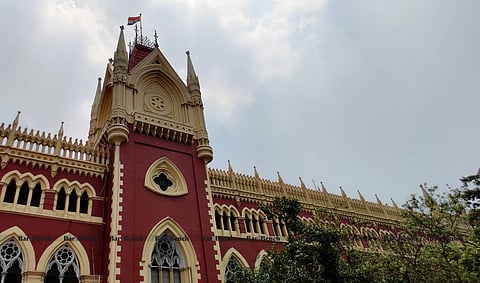
- Latest Legal News
- News
- Dealstreet
- Viewpoint
- Columns
- Interviews
- Law School
- Legal Jobs
- हिंदी
- ಕನ್ನಡ

The Calcutta High Court recently held that an employee looking for another job even with a rival company is a basic right and such actions do not constitute 'moral turpitude' as it is not dishonest or immoral. [M/s. Xpro India Limited. Vs. The State of West Bengal & Ors.]
Justice Shampa Dutt (Paul) made the observation while dealing with a plea by a company against an order to pay gratuity to one of its former employees.
"Thus looking for another job, even if with a rival company (though, not proved in this case) with better perks and facilities is a basic right and does not constitute moral turpitude as it is not contrary to honesty, modesty or good morals," the Court's judgment stated.
The petition was moved by M/S Expro India Ltd. challenging the orders of the Controlling Authority and Appellate Authority to pay gratuity to one of its former employees.
The company alleged that the employee had violated the terms of agreement by going to private meetings with persons from a rival company to share confidential information regarding their manufacturing processes.
After the company initiated an inquiry against him and issued show cause, the employee tendered his resignation. However, the company rejected the resignation.
The enquiry officer submitted a report stating that the employee had held several meetings with the rival firm and even acted as a middleman by contacting other employees to help the rival firm set up its production system.
The company subsequently terminated the employee from service after finding that he had engaged in misconduct amounting to moral turpitude. The company stated that his gratuity was forfeited under Section 4(6) of the Payment of Gratuity Act, 1972. The company also said it arrived at its decision after noting that the employee had later joined the rival company.
However, the controlling authority and appellate authority ordered the company to pay the employee his gratuity leading to the present appeal before the High Court.
After going through the report of the enquiry officer, the Court found that the company was neither able produce any witness nor show any call records to substantiate their charge that the employee was in touch with a rival company. The Court also critized the conduct of the enquiry officer calling it an abuse of power.
It, therefore, dismissed the petition and directed the company to pay the employee gratuity plus interest within two months.
"The petitioner in this case, could not prove that any damage or loss to, or destruction of, property belonging to the employer was due to the act of the respondent, which was riotous, disorderly, or involves moral turpitude," the Court concluded.
The petitioner-company was represented by advocates Nayan Rakshit, and Nilay Raksh.
The respondent-employee was represented by advocates Atanu Biswas, and Mrinal S.
Advocates Avijit Sarkar and Abdus Salam appeared for the State.
[Read Judgment]